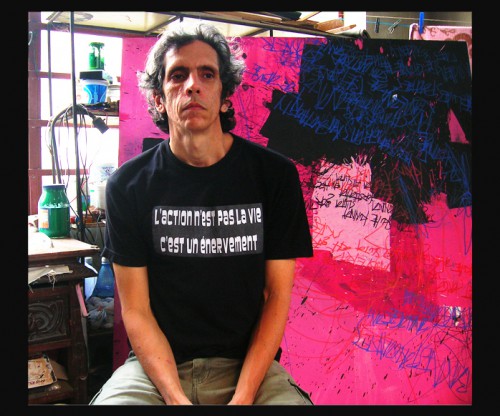Luis Trápaga
by Sampsonia Way / July 29, 2013 / No comments
He studied at the San Alejandro Fine Arts Academy.
He participated in the community art project of Baconao Park, Santiago de Cuba, and in the restoration of La Merced Church of Old Havana, declared Cuban national patrimony.
He has worked as an art designer and film director for the animation studios of the Cuban Institute for Cinema Art and Industry (ICAIC).
His artwork has been published in national magazines such as La Gaceta de Cuba and on the covers of the collection Pinos Nuevos Prize from Letras Cubanas publishing house.
He resides in Havana City.
Personal Exhibits:
Dos caminos (Two Ways). International Press Center, Habana 2001.
Figuraciones y Desfiguraciones (Imaginations and Disfigurements). National Medical Library. La Habana 2002.
En el medio… (In the Middle). Juan David Gallery, Cinema Yara Cultural Center. La Habana 2002.
Abstracciones (Abstractions). Horizontes Caribbean Hotel, La Habana 2002.
Interview with Luis Trápaga by Azucena Plasencia
I have always kept experimenting, although there has been no substantial change in what I do. I’ve always liked illustration. Hence, my drawing sometimes has the character of a comic book. In fact, I enjoy drawing the lines. It relaxes me.
Current Cuban visual art is wonderful, especially that other than painting and sculpture. What previously seemed a lack, like painting or drawing “wrong,” now becomes a challenge, with any media or format, whatever is available. And, what is most important, with any idea that seems to get away from what traditionally could be understood as art. The traumas and phobias seem the same as always, but politics and sex are two of the most recurring themes, and even when it seems you’re approaching them as something new, they have always been there.
Just exhibiting in your own space is something very comfortable and liberating, especially when you realize that you have to start to free yourself from yourself. This, assuming that in your own space you don’t have any kind of censorship, would seem, as a starting point, perfect. Read this and other interviews.





